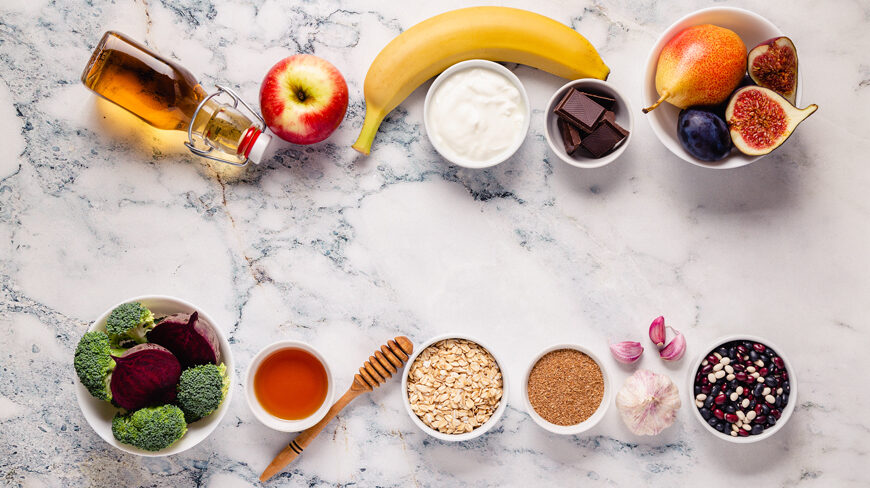The Top Foods to Avoid for a Healthy Gut
A healthy gut is essential for overall health and wellness. Your gut helps regulate digestion, boosts immunity, and even affects mental health. Because of this, taking care of your gut is vital. One way to do that is by being mindful of what you eat, below is a list of the foods to avoid for a healthy gut.
Certain foods can be incredibly beneficial for gut health, while others can be pretty harmful. By making wise dietary choices, you can significantly support your gastrointestinal well-being and enjoy all the benefits that come with it.
What Is a Healthy Gut, and Why Is It Important?
The community of microorganisms in your digestive system (your gut microbiome) must be balanced if you want to have a healthy gut. A healthy gut microbiome promotes proper digestion, absorption of nutrients, and overall gut health. The benefits of a healthy gut include improved mental health, stronger immunity, and reduced risk of chronic diseases.
What happens when your diet doesn’t support a healthy gut?
Eating foods that harm your gut microbiome can lead to imbalances, inflammation, and an increased risk of digestive disorders such as irritable bowel syndrome (IBS). A diet high in processed foods, sugar, and unhealthy fats can contribute to weight gain and conditions such as type 2 diabetes and heart disease. Foods that are bad for gut health are those that promote the growth of unwanted bacteria, yeast, and fungi.
The Top 10 Foods To Avoid for a Healthy Gut
Making wise dietary choices is essential for preserving gut health. Because of this, we’ve compiled a list of the top ten foods you should avoid if you want to significantly improve your gut health.
1. Processed foods
Processed foods are high in additives, preservatives, and unhealthy fats, which can harm your gut microbiome.
2. Refined sugar
Refined sugar can disrupt the balance of bacteria in your gut, leading to inflammation and digestive issues.
3. Gluten
Gluten is a protein found in wheat, barley, and rye and can cause inflammation in the gut for people with celiac disease or non-celiac gluten sensitivity.
4. Dairy products
For many people, dairy products can cause digestive issues such as bloating, gas, and diarrhea.
5. Fried foods
Fried foods are high in unhealthy fats that can harm your gut microbiome and contribute to inflammation.
6. Red meat
Frequent consumption of red meat can contribute to inflammation and an increased risk of colon cancer.
7. Artificial sweeteners
Artificial sweeteners can disrupt the balance of bacteria in your gut and contribute to digestive issues.
8. Alcohol
Excessive alcohol consumption can harm your gut microbiome, leading to digestive issues and decreased immunity.
9. Caffeine
While moderate caffeine consumption is generally safe, excessive consumption can cause digestive issues such as acid reflux and heartburn.
10. High-fructose corn syrup
High-fructose corn syrup is a highly processed sugar that can disrupt the balance of bacteria in your gut and contribute to inflammation.
Food Options for a Healthy Gut
Avoiding the foods listed above can help support a healthy gut. But what should you be eating instead? Here are some food options that promote good gut health.
- Fiber-rich foods. Foods high in fiber, such as fruits, vegetables, and whole grains, can help maintain a healthy gut microbiome.
- Fermented foods. Fermented foods, such as kimchi, kefir, and yogurt, contain beneficial bacteria that can help support a healthy gut microbiome.
- Probiotics. Probiotics are beneficial bacteria that can help balance your gut microbiome and improve digestive health.
- Healthy fats. Foods high in healthy fats, such as avocados, nuts, and olive oil, can help maintain gut health.
Take Control of Your Gut Health
It is important to remember that gut health is unique to each individual, and what may be beneficial for one person might not work for another. If you are experiencing digestive issues or have concerns about your gastrointestinal health, seeking the advice of a healthcare professional, such as a gastroenterologist or dietitian, is the best course of action. These experts can help you develop a personalized plan for maintaining a healthy gut and addressing any issues affecting you.
If you’re interested in improving your gut health, schedule an appointment today!
Request Appointment
Related:


